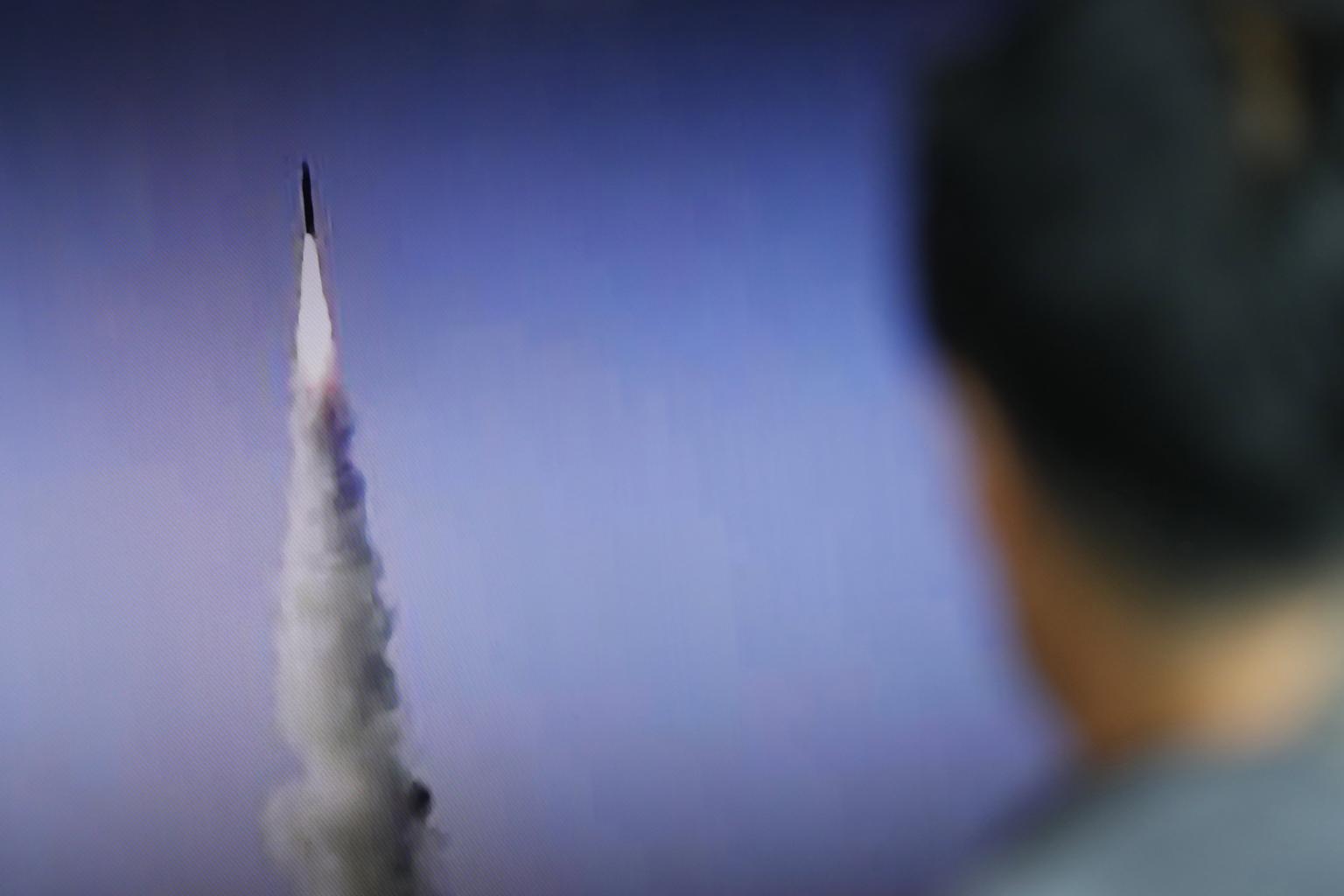University of Hawaii sends e-mail to students, staff on what to do in event of nuclear attack
Sign up now: Get insights on Asia's fast-moving developments

A South Korean man watches a television displaying news broadcasts reporting on North Korea's recent medium-range ballistic missile launch.
PHOTO: EPA-EFE
Follow topic:
WASHINGTON (WASHINGTON POST) - Many schools go to great lengths these days to ensure their campus communities are ready for whatever emergency might arise, such as a hurricane, a blizzard or, worse, an active shooter.
The University of Hawaii (UH) took that spirit of preparedness a step further this week with an e-mail to students and staff that began with the subject, "In the event of a nuclear attack".
The e-mail from the Aloha State's university system went to 50,000 students and 10,000 employees at 2.25pm on Monday local time.
It made reference to growing tensions between the United States and North Korea over the isolated Communist nation's nuclear-weapons ambitions.
"In the light of concerns about North Korea missile tests, state and federal agencies are providing information about nuclear threats and what to do in the unlikely event of a nuclear attack and radiation emergency," the e-mail said."For this type of event, the 10 campuses of the University of Hawaii will rely on the Hawaii Emergency Management Agency siren system and follow agency instructions on 'sheltering-in-place'."
The Hawaiian Islands lie roughly 4,600 miles southeast of North Korea, in the Pacific Ocean, raising the question of whether the island state could someday be a target of a North Korean missile strike.
The e-mail drew immediate and widespread notice.
It is not routine in academia for schools to broadcast "what-if" guidance on nuclear attacks.
Soon after he sent it, a university communications official wished he could take it back."I take full responsibility for it," Mr Daniel Meisenzahl, spokesman for the University of Hawaii system, said last Tuesday (Oct 10). "It was a mistake on my part."
Mr Meisenzahl said it is routine for the university to send out precautionary e-mail messages about hurricane season and tsunami warning systems and the like. Generally, the e-mail messages provide a link for members of the community to sign up for UH Alerts, an electronic notification system.
As it happened, Mr Meisenzahl said, university officials have been getting inquiries for the past few months about a possible North Korean nuclear threat. So they wanted to send a message that would be responsive.
"If I were to do it all over again, the one thing I would have done is put 'unlikely' in the subject line," Mr Meisenzahl said. He then added that he also might have put into all caps: "NO REASON FOR ALARM" and other language to the effect of, "Don't take this the wrong way".
"The subject line could use some work," he concluded. He quipped that he had been dealing for several hours with "the fallout from a nuclear e-mail".
He would much prefer if the world took note of the university for its high-level oceanography, astronomy and other academic programs.
But there was a bright side, he said: "At least people are clicking on it."

